GENERAL SITUATION IN MEXICO
Weekly Review I August 27, 2025

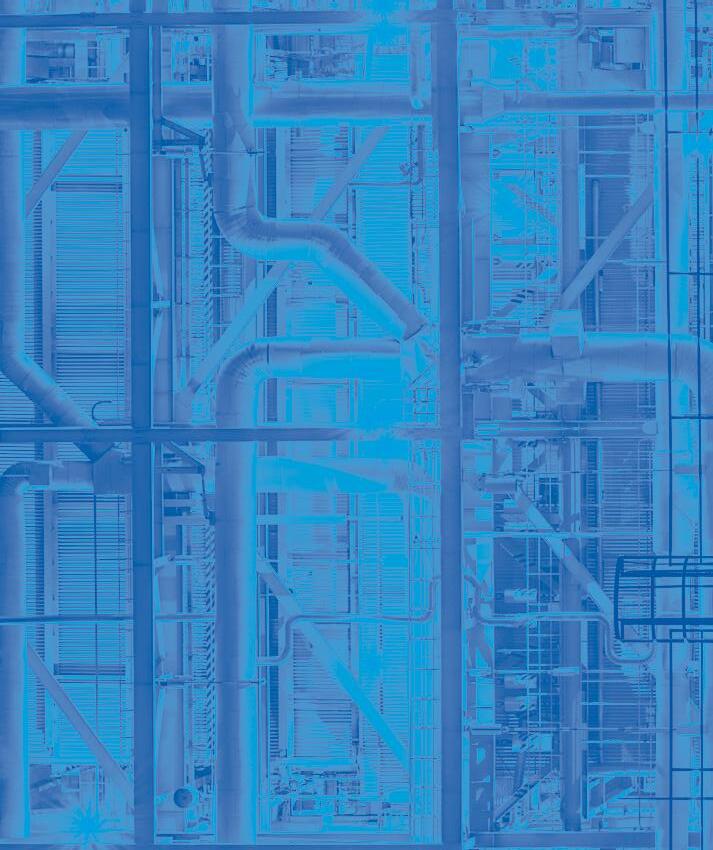
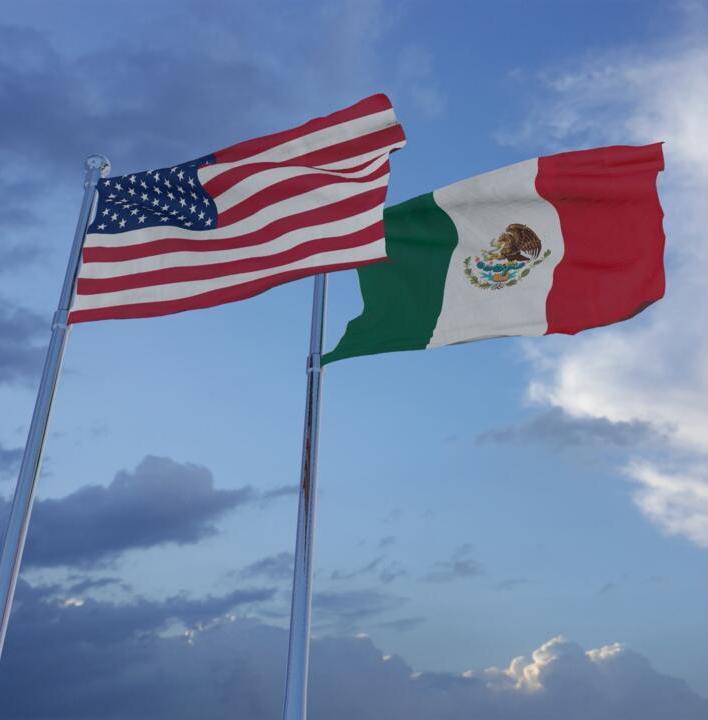

Weekly Review I August 27, 2025



• U.S. Ambassador Ron Johnson met with leaders of Mexico’s automotive industry, underlining the sector’s strategic importance for both economies.
• Johnson stressed that the auto sector is a priority for President Trump, as it generates jobs, investment, and global competitiveness.
• He highlighted the deep integration of U.S. and Mexican supply chains, with Mexican production being essential for U.S. industry.
• Cooperation with President Claudia Sheinbaum’s administration was framed as key to strengthening the sector’s future.
• The meeting suggests a positive outlook for Mexico’s automotive industry, reflecting Washington’s willingness to collaborate on maintaining North American competitiveness.
• Secretary Marco Rubio announced a pause on worker visas for foreign commercial truck drivers.
• He justified the move as necessary to protect the well-being and job stability of American drivers.
• The decision may generate tensions in cross-border logistics, given the trucking industry’s vital role in trade flows.
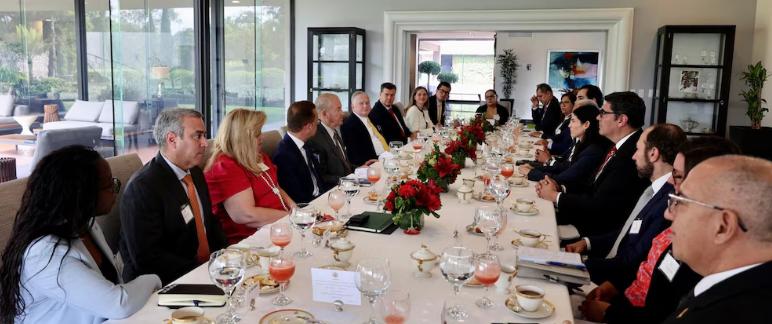
• President Claudia Sheinbaum is advancing a new bilateral security agreement with the U.S. focused on combating organized crime.
• Unlike former president López Obrador’s more isolationist approach, Sheinbaum emphasizes joint strategies over unilateral measures.
• The framework seeks to balance pragmatic cooperation with U.S. authorities while safeguarding Mexico’s sovereignty.
• This policy signals a shift toward constructive engagement, potentially strengthening trust and regional stability.
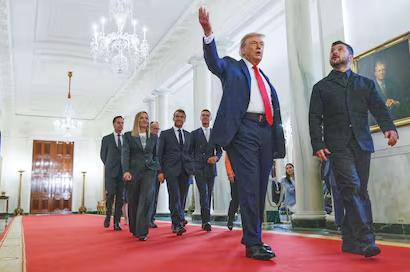
• In Washington, the “Operation White House” summit brought together President Trump, Volodymyr Zelensky, and European leaders.
• Europeans sought to prevent Ukraine’s isolation and secure stronger U.S. security guarantees against Russia, following Trump’s friendly meeting with Putin.
• The strategy combined flattery and appeals to humanitarian concerns, while also pushing for longterm trade and defense commitments.
• Though the results remain uncertain, the summit underscored Europe’s intent to manage Trump’s unpredictability and preserve transatlantic cooperation.
SOURCES: EL UNIVERSAL, LA JORNADA, EL PAÍS
• INITIATIVE WITH DRAFT DECREE TO AMEND VARIOUS PROVISIONS OF THE FEDERAL LABOR LAW
Presented by: Dip. José Guillermo Anaya Llamas (Coah - PAN)
Objective: Requires employers in services, commerce, and similar sectors to provide sufficient chairs with backrests for workers. Employees standing must be allowed at least 5 minutes seated for every hour worked.
Status: 2025-08-20 – Published in the Parliamentary Gazette
• INITIATIVE WITH DRAFT DECREE TO ADD VARIOUS PROVISIONS TO THE FEDERAL LABOR LAW
Presented by: Dip. Ivonne Aracelly Ortega Pacheco (Plur - MC)
Objective: Grants workers the right to request up to two telework days per week, with written agreements, protections for reversibility, voluntariness, and equal treatment, while allowing employers to deny requests only with justified technical or operational reasons.
Status: 2025-08-20 – Published in the Parliamentary Gazette
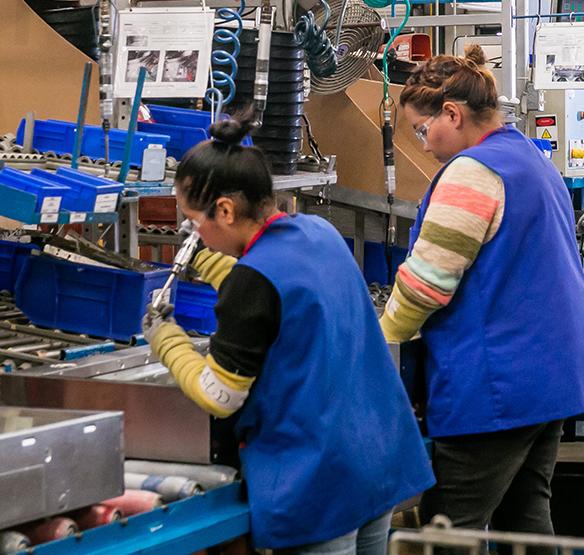
• INITIATIVE WITH DRAFT DECREE TO ADD ARTICLE 39 TO THE VALUE ADDED TAX LAW
Presented by: Dip. Jorge Alfredo Lozoya Santillan (Plur - MC)
Objective: Grants the Federal Executive authority to define at least three days per fiscal year in which certain goods—such as appliances, electronics, clothing, school supplies, fuel, and prepared food—are exempt from VAT, up to 10 UMAs per unit.
Status: 2025-08-20 – Published in the Parliamentary Gazette
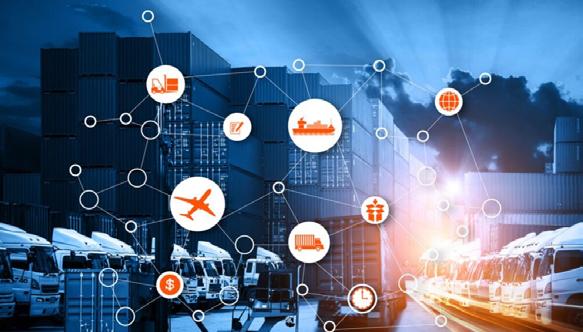
• INITIATIVE WITH DRAFT DECREE TO AMEND ARTICLE 61 OF THE CUSTOMS LAW
Presented by: Dip. Jorge Alfredo Lozoya Santillan (Plur - MC)
Objective: Establishes that foreign trade taxes will not be paid on goods other than passenger luggage, as a customs exemption,
Status: 2025-08-20 – Published in the Parliamentary Gazette
• INITIATIVE WITH DRAFT DECREE TO ADD SECTION VI TO ARTICLE 61 OF THE CUSTOMS LAW
Presented by: Dip. Jorge Alfredo Lozoya Santillan (Plur - MC)
Objective: Sets a minimum customs exemption threshold of 1,000 U.S. dollars or its equivalent in national or foreign currency.
Status: 2025-08-20 – Published in the Parliamentary Gazette


The National Chamber of Freight Transportation (Canacar) in Tijuana expects the Mexican side of the Otay II border crossing to open by mid-September 2025, following the completion of a Defense Ministry audit and its handover to Mexico’s Customs Agency (ANAM). While it will not operate as a full customs checkpoint at first, the new route will allow controlled crossings of empty and certified trucks into the fiscal corridor, helping ease congestion on key urban roads like Boulevard Bellas Artes, which currently sees around 1,500 trucks daily. With exports down by up to 40% due to the economic slowdown in Mexico and the U.S., Canacar sees this as an opportune moment to adjust logistics flows without major disruption, aiming for a smooth and efficient start in collaboration with ANAM and local authorities.
SOURCE: INDUSTRIAL NEWS BC
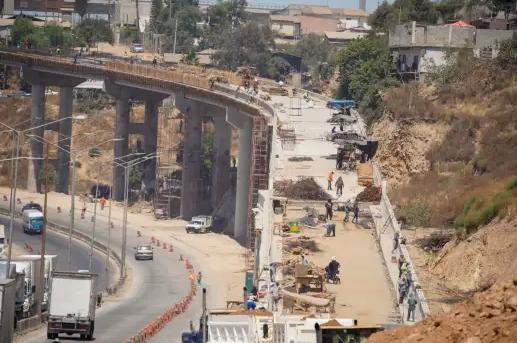

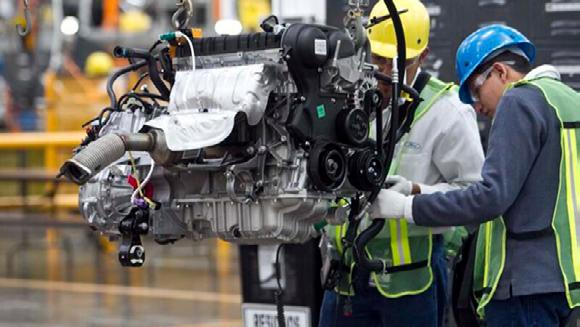

Chihuahua, one of Mexico’s leading contributors to the automotive industry, is adopting the “tetra-helix” model—a collaboration between industry, academia, government, and civil society. In partnership with the University of Michigan, the state government, and research centers, the automotive cluster is conducting a pioneering study addressing industrial transformation alongside social and technological shifts. The analysis identifies strategies to strengthen areas such as software, advanced electronics, and specialized harness systems, with an emphasis on developing local suppliers. This initiative aims to advance electromobility and sustainable mobility, aligning with new trade policies, technological progress, and growing demand for a greener industry.
SOURCE: NORO

Nuevo León will host the Aluméxico Summit & Expo 2025 from September 9–11 at Cintermex, bringing together over 2,000 industry leaders and 60 exhibitors from around the world to discuss the economic, technical, and commercial challenges of the aluminum sector. Organized by the state’s Ministry of Economy and IMEDAL, the event highlights the industry’s strategic role in Mexico, particularly in Nuevo León, where metal industries account for 14% of manufacturing GDP and aluminum-based products represent nearly 37% of exports. Key discussions will focus on tariffs, international trade, and the upcoming USMCA review, with participation from aluminum associations of Mexico, the U.S., and Canada. With more than 3,000 m² of exhibition space and attendees from countries such as the U.S., China, Brazil, and Italy, the summit positions Nuevo León as a major industrial and logistical hub for aluminum in the region.
SOURCE: GOVERNMENT OF MEXICO


El Bajío Industrial Park in Salamanca inaugurated its Building 06 and began construction of Building 10, representing a joint investment of $6.9 million USD and the creation of 225 jobs, bringing the park’s total investment to $65.4 million USD with 87% occupancy and a projection of 1,275 jobs. Backed by Altea Desarrollos and state authorities, the project strengthens Guanajuato’s position as an industrial hub, offering modern infrastructure, road and rail connectivity, and proximity to automotive and logistics clusters. Governor Libia Dennise García highlighted the economic impact for Salamanca and surrounding municipalities, while noting Guanajuato’s broader industrial strength with 47 parks across 17 municipalities, hosting over $2.5 billion USD in recent investments and more than 7,000 jobs. The expansion aligns with federal initiatives like the Puerta Logística del Bajío, reinforcing the state’s role as a manufacturing and export powerhouse in Mexico
SOURCE: MEXICO INDUSTRY
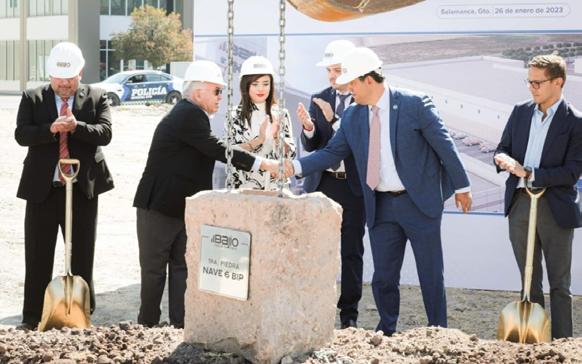


Mexico City reinforced its Plan Tlaloque with a historic investment of 1.595 billion pesos to strengthen its response to heavy rains and flooding. Head of Government Clara Brugada Molina oversaw the delivery of 260 vehicles and specialized equipment, including 40 hydropneumatic trucks, 200 pipes, 20 water transport trucks, and 324 pieces of machinery such as pumps, compressors, and backhoes. The equipment will improve the city’s emergency response, especially after rainfall has exceeded the annual average by 41%. Strategically distributed across municipalities, the hydropneumatic units will accelerate flood control, while new technology enables 30–40% faster response times and long-term pipeline rehabilitation without excavation, extending durability by over 50 years. The plan also expands water distribution capacity to 20,000 jugs daily.
Coordinated with SEGIAGUA, Civil Protection, Security, and Fire Departments, the initiative strengthens inter-institutional cooperation. Authorities emphasized that despite extraordinary rains, the strategy has maintained zero casualties, ensuring greater urban resilience.
SOURCE: MSN NEWS
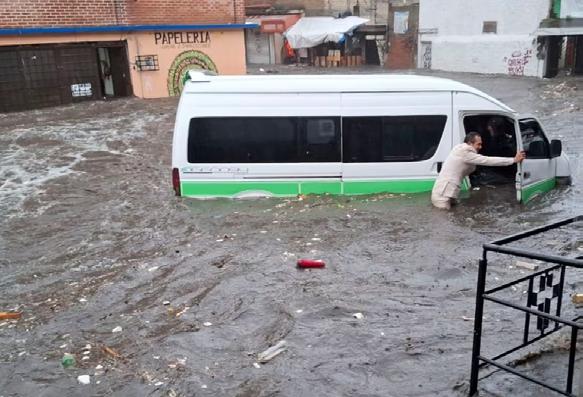



The State of Mexico government is advancing a dual strategy to attract investment and strengthen public finances by offering up to 14 payroll tax subsidies alongside support for municipal tax collection. These incentives include five-year tax waivers and targeted benefits: 100% payroll tax relief for 36 months for companies hiring seniors (60+), recent graduates, or vulnerable groups such as indigenous communities, domestic workers, and repatriated Mexicans. Additional relief is offered for first-time workers, female heads of household running small businesses, and cultural or sports companies. Certain sectors, like maquiladoras, may access 50% subsidies for up to 24 months. The measures aim to boost nearshoring, job creation, and supply chain resilience, positioning the state as a competitive investment hub. Concurrently, the government collaborates with 111 municipalities to enhance property tax and water fee collection through digital platforms, payment reminders, and drone-assisted cadastral updates, ensuring fairer, more efficient revenue generation to meet local service demands.
SOURCE: EL SOL DE TOLUCA
NAPOLEON
Canadian company Napoleon, a global leader in home appliances, inaugurated a new assembly plant in Ramos Arizpe. The investment exceeded 200 million pesos and will generate more than 200 direct jobs.
MIYM
Mexicana de Industrias y Marcas (MIYM) announced the construction of a new plant in Aguascalientes, representing an investment of 59 million dollars. The project will create 550 direct jobs and will be located in the northern part of the state. Operations are scheduled to begin in early 2027.
Bayer Mexico announced a 43 million dollars investment in its Orizaba, Veracruz plant. The company detailed that 32.2 million dollars will go to the property and 10.7 million dollars to upgrading laboratories, infrastructure, and systems. This expansion falls under Bayer’s five-year plan, which earmarks up to 161.2 million dollars for the modernization and growth of its facilities.
KIRCHOFF
German company Kirchhoff inaugurated a new plant at Parque Opción in San José Iturbide, with an investment of 60 million dollars and the creation of 200 jobs. The facility will specialize in key processes for the automotive and auto parts industry.
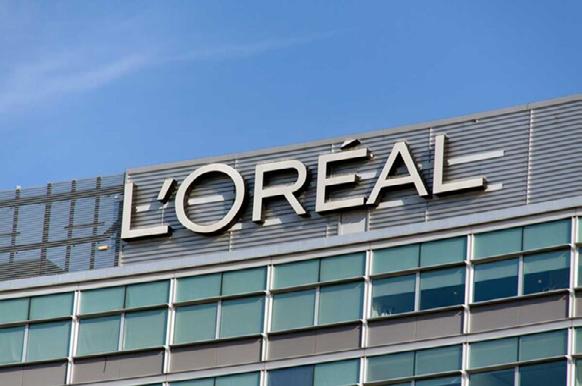
L’Oréal announced an investment of over 80 million dollars, to be deployed through 2026 in Mexico to expand production lines at its San Luis Potosí and Xochimilco, Mexico City plants. Together, these facilities currently produce more than 420 million units annually.
SOURCES: MEXICO INDUSTRY, MEXICO NOW, CLUSTER INDUSTRIAL, EL ECONOMISTA
For manufacturing leaders, success in Mexico goes beyond compliance—it’s about visibility. This blog highlights the essential KPIs every CEO should monitor, from total landed cost, on-time delivery, and quality performance to USMCA compliance, cash flow, and workforce stability. Prodensa’s custom PowerBI dashboards consolidate financial, trade, and HR indicators, while market intelligence metrics like exchange rates, tariffs, FDI trends, and real estate absorption help executives stay ahead of competitive pressures. With the right data, shelter service operations transform into a strategic advantage for scaling and optimizing investment in Mexico.


At the 85th National Congress of Customs Brokers, experts—including Prodensa CEO Emilio Cadena—agreed: AI isn’t replacing jobs, it’s reshaping them. From data-driven compliance and predictive analytics to supply chain traceability, AI is becoming a cultural shift in customs operations. Success depends on high-quality data, workforce upskilling, and company-led adoption—not waiting for government regulation. For manufacturers and nearshoring firms, embracing AI in customs now means stronger risk prevention, smarter operations, and longterm competitiveness.